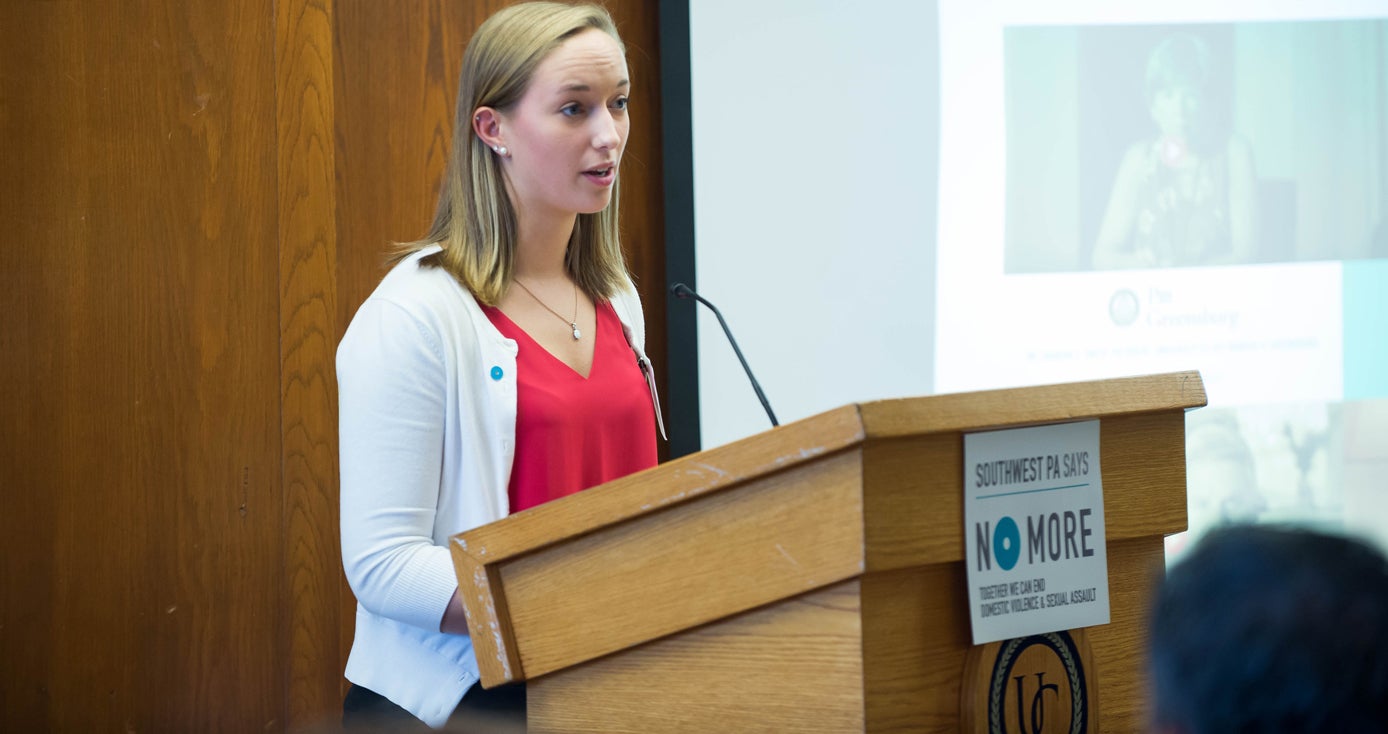
Subscribe to Pittwire Today
Get the most interesting and important stories from the University of Pittsburgh.University Leaders and Community Partners Unite Against Sexual Assault on Campus
Sexual violence was already an issue on Maggie Kennedy’s radar in high school, but when her friend took her own life, it shook Kennedy to her core.
Later, she found out her friend had been sexually assaulted by an ex-boyfriend and lived in fear of him.
Kennedy then launched a campaign against sexual violence at her Pennsylvania high school and now, as a junior at Pitt, she is one of seven University representatives for It’s On Us — an organization striving to end sexual assault. The national organization launched in 2014 following recommendations from a White House task force. It aims to create an environment in which sexual assault is unacceptable and survivors are supported.
“I wish our work could have saved (her), but I know she’s proud of what we’re doing to save others,” Kennedy told a group assembled at the University Club on the University of Pittsburgh campus earlier this month.
The gathering, which included leaders from regional universities, the Allegheny County District Attorney’s office, elected officials and community partners, was sponsored by Southwest PA Says No More — a growing community of organizations and individuals who have taken up the cause.
The event featured an unveiling of a new video series in which leaders of 13 colleges and universities in Allegheny and Westmoreland counties appeal to their communities to refuse to tolerate abuse on campus and to encourage victims to report abuse and get the help they need. The site also includes separate messages from each university leader, including Pitt Chancellor Patrick Gallagher and Pitt–Greensburg's President Sharon P. Smith.
The main video reveals the fact that one in five college-age women and one in 14 college-age men have reported being a victim of a sexual assault while in college, according to the U.S. Department of Justice.
On the Pitt campus, the Office of Diversity and Inclusion educates the community about Title IX, a section of the civil rights law passed in 1972 that prohibits sex and gender discrimination in education.
The University has an array of educational programs aimed at preventing sexual assault and harassment, as well as relationship violence and stalking. They include mandatory online training for all incoming staff, faculty and students, along with peer education via two student organizations.
Sexual Assault Facilitation and Education and PantherWELL consist of more than 75 highly trained peer educators who present programs about sexual assault and violence. The focus is on bystander intervention to help students safely intervene as a situation occurs or is about to happen.
Pitt Title IX coordinator Katie Pope says the peer education programs have been particularly effective.
“We see nearly 100 percent of students going through the program report they understand the definition of consent and why consent is necessary,” she said. “In addition, we have worked hard to build trust between the faculty and the Title IX office, and we have seen that those relationships have led to greater reporting and transparency in the process.”
Kennedy, who also serves as a peer educator through the Sexual Assault Facilitation and Education organization, reminded those at the Southwest PA Says No More event that “awareness of this issue cannot stop until there is nothing left to be aware of.”
She added, “I’m grateful to attend Pitt, which funnels so much time and energy into solving this problem and supporting survivors.”


